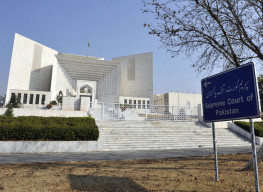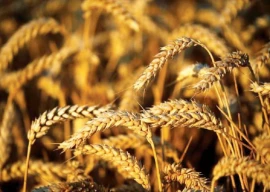
The reference to the Australian system of justice augurs well for the senior judiciary. It shows that while asserting themselves on issues they deem critically important to the people of Pakistan, the honourable judges are also digging out parallels from other parts of the world to legally and morally reinforce their interventions in political governance.

The honourable justices are obviously embedding their interventions in Chapter 1: Fundamental Rights (Articles 8 to 28), as well as in their oath as required under the Articles 176 and 178 of the Constitution. The oath places immense responsibility on their shoulders and hence, in a sea of misgovernance, corruption, indiscipline and arbitrariness of the military and civilian leadership (privileges, perks, patronage), the judges feel compelled to ask uncomfortable questions and tend to speak out on matters that ostensibly belong to the functions of the executive or the legislature.
But as much as one would admire the judicial activism unleashed in March 2007, one is also tempted to ask as to whether the Supreme Court can assume the role of other institutions in its attempts to set things right? Probably not. Besides, the over three million pendency in all courts across Pakistan and the fate of most of the nearly 100 suo-motu cases, also underlines the limitations of the Court; some of the suo-motu actions by the Court have been remarkable and essentially served as a daunting check on the arbitrariness of the ruling elite, which have until 2007-2008 been abusing their authority to the detriment of the teeming millions. The millions vote them into power but the elected ones disregard the electorate, and keep showering largesse on their near and dear ones.
From this perspective, the courts have tipped the balance of power in the state. But, if one were to draw on the examples of Australia, the United States, Germany or the UK, the legal framework governing the state there remains deeply cognisant of, and committed to, secular political governance. The courts there go simply by the law of the land, without discriminating among its citizens on the basis of belief, cast or creed.
The Court can, perhaps, review policies of bleeding state institutions, propose new governance parameters for them and throw the issue to parliament for debate. The Court, for instance, can ask the Capital Development Authority (CDA) about the policy on illegal construction in the federal capital. Hundreds of illegal structures make a mockery of the rule of law in the capital itself. Socially, religiously and politically influential people and groups keep grabbing state lands and the CDA looks the other way.
Ironically, the CDA on January 24, for instance, demolished 15 houses in Saidpur Village which it found in breach of law. Quite funnily, almost every sector of Islamabad and the green belts house numerous illegal structures but the owners are probably too powerful for the CDA.
The instruction by the Islamabad High Court to the CDA to remove all illegal settlements in Islamabad within one month should be a welcome step but this is where the Supreme Court can intervene and go a step further to establish the rule of law by ordering the demolition of any structure that violates CDA laws. The Court’s impact can be lasting and the service priceless, if it can start reviewing and redefining the legal framework that governs life and institutions in this country.
Published in The Express Tribune, February 12th, 2014.
Like Opinion & Editorial on Facebook, follow @ETOpEd on Twitter to receive all updates on all our daily pieces.
COMMENTS (1)
Comments are moderated and generally will be posted if they are on-topic and not abusive.
For more information, please see our Comments FAQ




















1714024018-0/ModiLara-(1)1714024018-0-270x192.webp)























land grabers are mounting every where in Pakistan and it has to be restrained, other wise, this issue will bring more lawlessness. the concern authorities must take notice time to time and judicial must take action against of this kind of notorious act. it is very imperative.